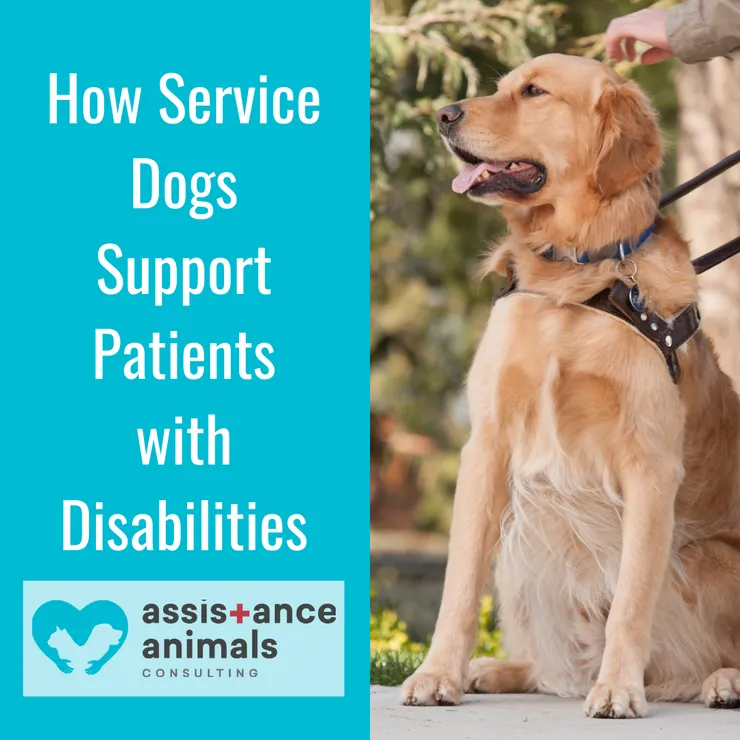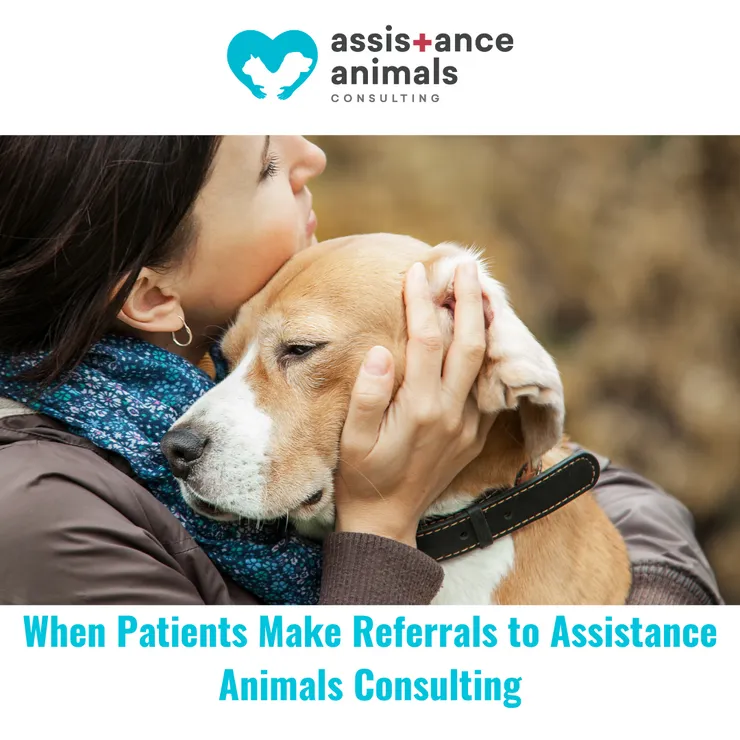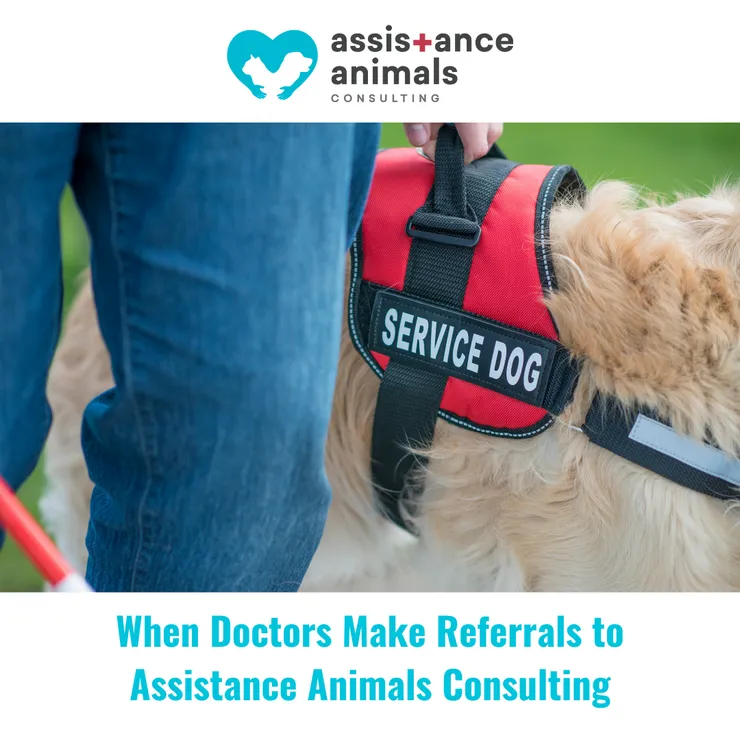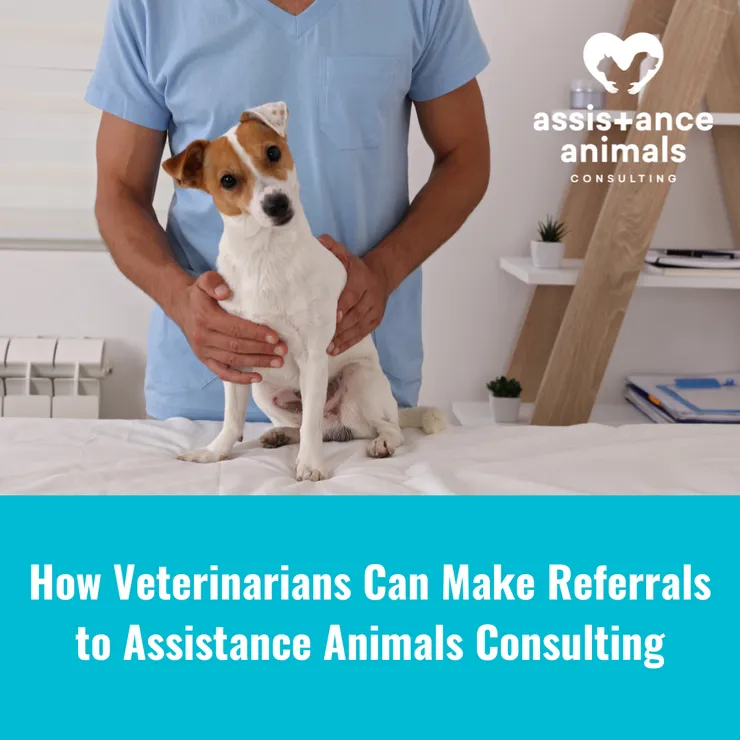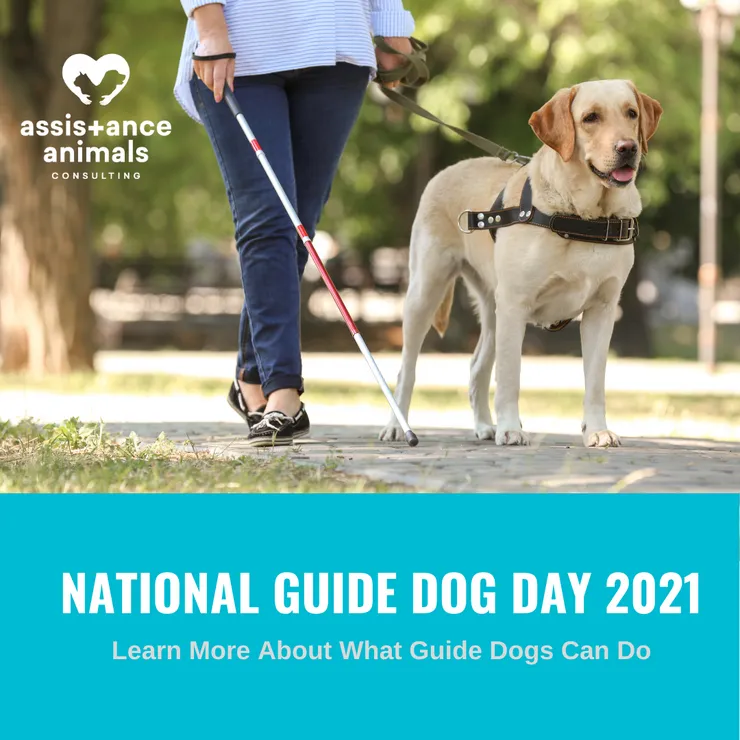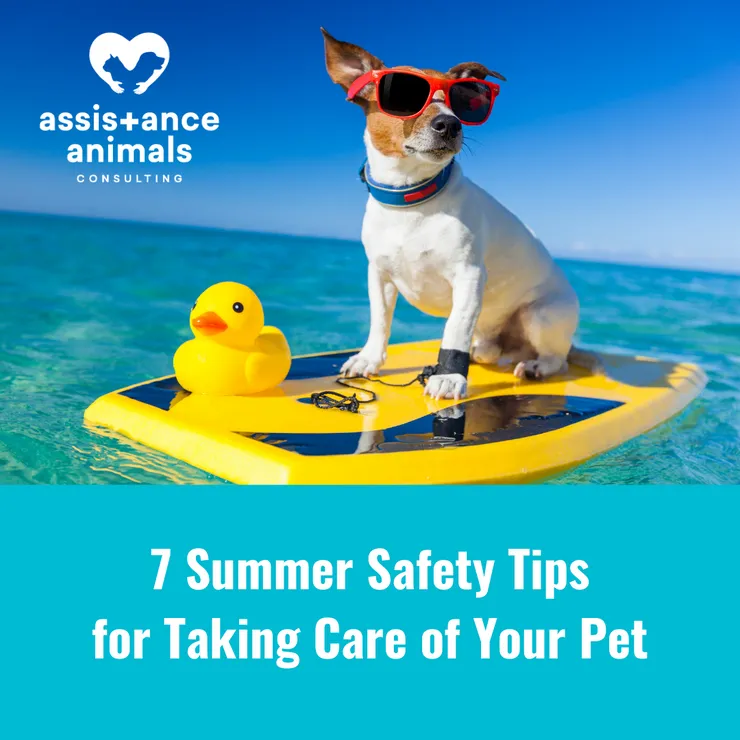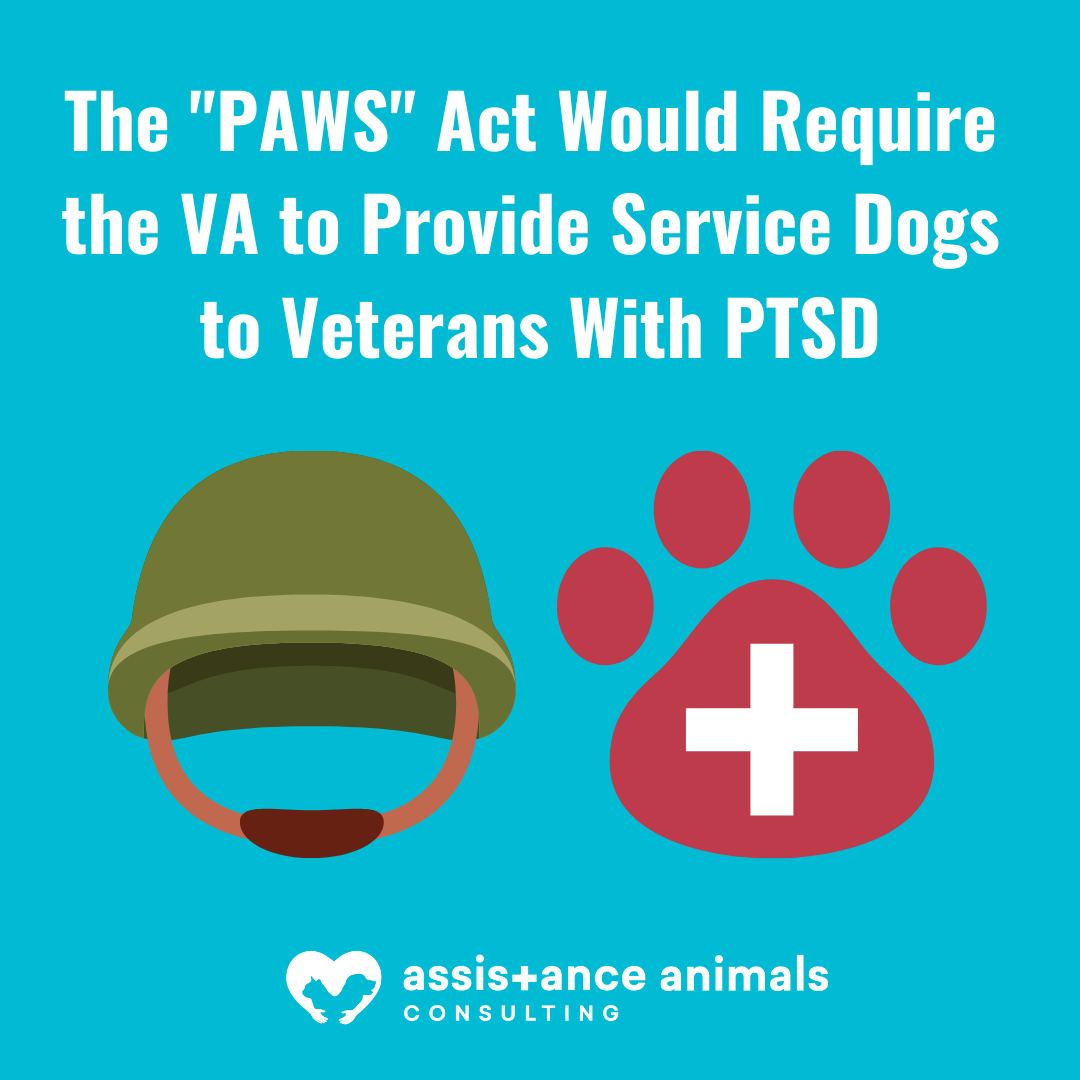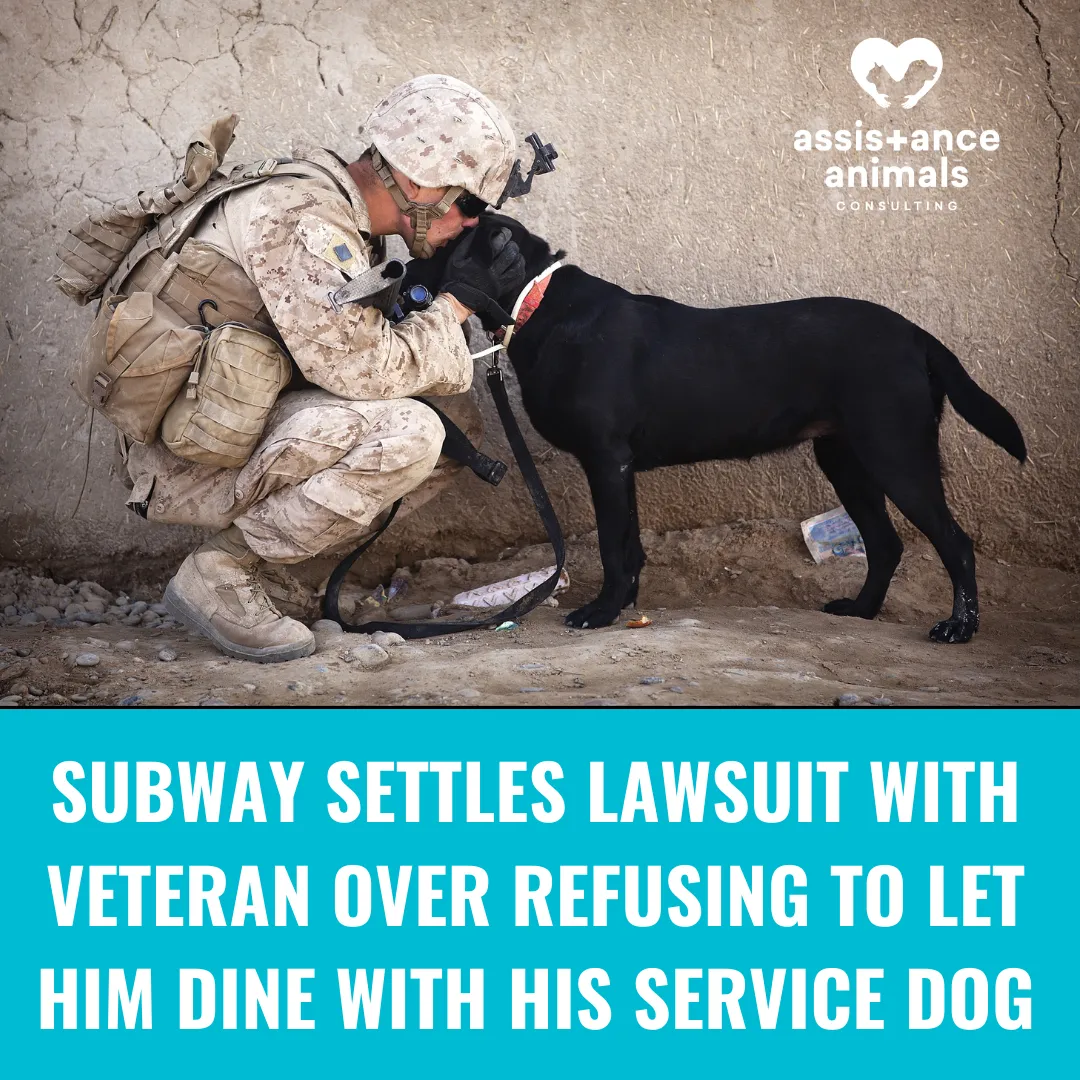3 Reasons You Need A Veterinarian in Animal-Assisted Intervention Programs
3 Reasons You Need A Veterinarian in Animal-Assisted Intervention Programs
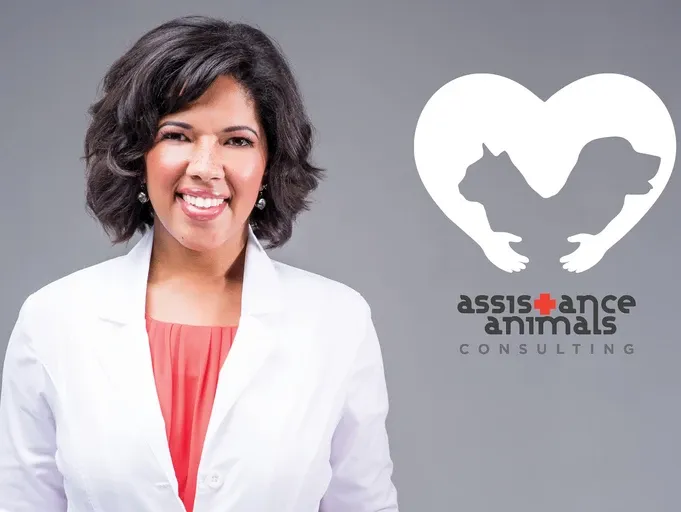
When your pet gets sick, the first person you contact is a veterinarian. But what if you need a service animal, emotional support animal, or you want your pet to participate in a therapy animal program? Should you contact a veterinarian for guidance? The answer is yes! Veterinarians are animal experts who you rely on for keeping your pet healthy, and they should be involved in protecting and strengthening the human-animal bond with the use of animal-assisted intervention plans and strategies. At Assistance Animals Consulting, we are the animal-assisted intervention experts who evaluate and protect the health of both humans and assistance animals. Ask the assistance animal intervention experts — ask Assistance Animals Consulting, the licensed veterinarians and experts uniquely qualified to support you by providing resources for education, behavioral understanding, and guidance regarding assistance animals.
We're highlighting the importance of a veterinarian's involvement when an assistance animal is deemed necessary as part of a prescribed therapy plan. Assistance Animals Consulting supports handlers who need guidance with caring for their animal, businesses where the rights of the handler and their support animal needs to be understood, and therapy programs that need animal evaluations.
Did you know veterinarians need to be the advocates for the emotional and physical health of animals used in animal-assisted therapy? There are on average 113,394 licensed veterinarians practicing in the United States. Veterinarians should be at the forefront of conversations about assistance animals before and during animal-assisted therapy interventions. It is important to evaluate the emotional and physical health of the assistance animal and to identify issues that could negatively affect public health and safety. Our licensed veterinarians at Assistance Animal Consulting provide guidance and expertise throughout the entire process of an animal-assisted intervention program.
These three reasons explain why veterinarians are vital to any animal-assisted intervention program.
1. Not evaluating the behavior of an animal selected for use in an animal-assisted therapy program can have detrimental effects on the animal, the handler, and the general public.
We, as veterinarians, are trained to evaluate an animal's body language for signs of stress and anxiety. Placing a therapy animal in situations that cause them stress affects their ability to do their job and can put the handler and the general public at risk. It is common for a stressed, anxious, or fearful dog to become a reactive biter. According to the Centers for Disease Control, about 4.7 million dog bites occur in the United States and 800,000 of those require medical care.
2. Facilities like health care institutions, schools, and assisted living homes need to prevent the spread of disease. With animal-assisted therapy programs the risks of zoonotic disease, a disease that can be transmitted between animals and humans, needs to be addressed. Veterinarians know the correct preventive care and the treatments that must be in place to decrease the risk of zoonotic disease transmission to patients, students, and residents.
3. Currently, there isn't consistent follow-up on how effective the animal-assisted therapy program is regarding positive outcomes, and there isn't a consultation with a veterinarian regarding the appropriateness of the assistance animal chosen for this specialized therapeutic program. At this time, a human health care provider signs a form stating the need for a therapy animal whether it's a service animal or an emotional support animal. There is no requirement that the animal be evaluated for its emotional health or behavioral disposition that would indicate whether the human-animal therapy team will have a positive outcome. Assistance Animals Consulting supports human health care providers in their therapy goals and can provide guidance for utilizing animals to help accomplish these goals.
Including veterinarians in animal-assisted therapy programs helps to protect the animal, the handler, and the general public. During the last year, more animals have been entering businesses — restaurants, hotels, retail stores, and airports. Communities are learning more about service animals and their rights to access versus the rights of access of emotional support animals. Recent legislation is advocating for penalties toward those who are misrepresenting their pets as service animals. It is important all assistance animals are evaluated and monitored by a licensed veterinarian for their wellbeing, behavioral disposition, and obedience, so they can continue to do their jobs, resulting in fewer negative outcomes.
The licensed veterinarians at Assistance Animals Consulting advocate for those participating in human-animal interventions. Learn more about our evaluations and how we can help business owners, educational organizations, and health care facilities. Through our Workforce Development Program, we help organizations understand the importance of veterinary involvement in animal-assisted intervention programs. We collaborate, evaluate, educate, and advocate for successful human-animal interactions. Contact us to learn more.
